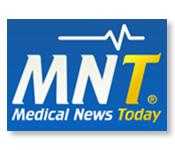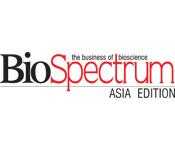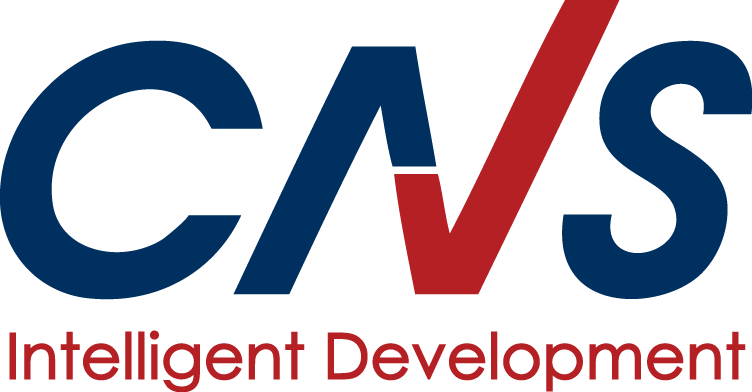International Conference and Exhibition on Antibodies (Antibodies -2015) is scheduled from August 10-11, 2015 in Birmingham, West Midlands, UK which aims to gather the most elegant societies and industries along with the renowned and honorable persons form top universities across the globe. Antibodies-2015 on behalf of its organizing Committee welcomes all the immunology researchers, industrialists, young scientists as well as student and corporate delegates to participate and to have a great experience. The theme of the conference of Antibodies is based on Novel Research and Therapeutic Challenges on Antibodies. During Antibodies conferences, the International symposiums, B2B meetings, international workshops will also be organized to discuss the specific topics in the field of Immunology and Microbiology. The conference also welcomes International exhibitions form corporate sectors to showcase the recent advancements in tools and techniques.
OMICS International is one of the leading Open Access scientific publication group taking initiative and is committed to make genuine and reliable contributions to the world’s scientific community. OMICS International hosts 350 Open Access journals with over 3.5 million readers and the renown and success of the same can be attributed to the strong editorial board which contains over 30000 eminent personalities. OMICS Group International Congress serve as a bridge between researchers from academia and industry enhanced by its well organized scientific sessions, plenary lectures, poster presentations, world class exhibitions, diverse International Symposiums, highly enriched International Workshops and B2B meetings.
The global market for ADC drugs reached $179 million in 2012 and $396 million in 2013. The market should reach $2.8 billion in 2018 with a compound annual growth rate (CAGR) of 48.1%. A comprehensive range of topics related to Antibodies research, Development, Therapeutic challenges and Diagnosis will be covered by international speakers. This forum enables a common platform for the participants to discuss their research in order to establish a scientific network between the academia and industry leads to foster collaboration and to evaluate the emerging issues, technologies and innovations leads to explore new possibilities and improving the existed opportunities.
Antibody drugs make use of the body’s own immune system to locate and eliminate cells which are responsible for the target disease. Antibody drugs have been successful in attracting the attention of researchers worldwide owing to their characteristic features such as fewer side effects and high efficacy in curing certain diseases which were previously untreatable.
Scientific Sessions:
Monoclonal antibodies (Antibody drugs) are now used for treatment of a wide array of diseases, especially cancer, autoimmune, and inflammatory diseases. The development of these new molecular agents, successfully directed to specific cellular targets, is expected to play an increasingly important role in future clinical protocol, and perhaps finally provide a means to achieve long-term tolerance in human allograft recipients.
Large scale research development is being conducted in the field of antibody drugs for the past two decades. By 2009, approximately 30 new antibody drugs were launched in the market. With an intention of launching new blockbuster drugs and to reform the pharmaceuticals industry, large pharmaceutical companies have begun to undertake aggressive steps to enter this market. Hence, it is expected that the antibody drugs segment will experience impressive growth in the global pharmaceuticals market. For instance, the global market for therapeutic monoclonal antibodies (mAbs) was estimated at US$44.6 billion in 2011. The global mAb market is expected to rise at a compound annual growth rate (CAGR) of 5.3% to nearly $58 billion in 2016 and is predicted to have a double digit growth of around 15% from the year 2012 to 2018. One of the key factors contributing to this market growth is the increasing prevalence of cancer. The Global Monoclonal Antibodies market has also been witnessing the trend of the increasing use of monoclonal antibodies in the development of personalized medicines. Technological enhancements and huge R&D in genomic studies have propelled the growth of this market.
Globally, North America is viewed as the largest market for antibody drugs followed by Europe. However, infrastructural development in the healthcare system and growth in awareness regarding the treatment of chronic diseases may influence a rapid growth of this market in Asia and in other parts of the world.
Antibodies
Antibodies are proteins produced by the B lymphocytes of the immune system in response to foreign proteins, called antigens. Antibodies function as markers, binding to the antigen so that the antigen molecules can be recognized and destroyed by phagocytes. Antibodies bind antigen with a high degree of specificity and affinity. The part of the antigen that the antibody binds to is called the epitope. B cells and antibodies together provide one of the most important functions of immunity, which is to recognize an invading antigen and to produce a tremendous number of protective proteins that scour the body to remove all traces of that antigen. Each type of antibody is unique and defends the body against one specific type of antigen.
Monoclonal Antibodies
Monoclonal antibodies are monospecific antibodies that are made by identical immune cells that are all clones of a unique parent cell, in contrast to polyclonal antibodies which are made from several different immune cells. Monoclonal antibodies have monovalent affinity, in that they bind to the same epitope. They can be made in large quantities in the laboratory and are a cornerstone of immunology. They are used to treat many diseases, including some types of cancer. They target various proteins that influence cell activity such as receptors or other proteins present on the surface of normal and cancer cells. The specificity of Monoclonal Antibodies allows its binding to cancerous cells by coupling a cytotoxic agent such as a strong radioactive which then seek outs to destroy the cancer cells while not harming the healthy ones.
Antibody Drug Conjugates
Antibody-drug conjugates (ADCs), a different kind of cancer therapy, offers a potentially new way to treat cancer by combining the proven antigen-specific selectivity and antitumor activity of monoclonal antibodies with the potency of cytotoxic molecules. ADCs have the potential to optimize the best features of both components by, increasing the cell-killing potential of monoclonal antibodies and conferring higher tumor selectivity and, therefore, increased tolerability while limiting systemic exposure. ADCs are part of a specialized subset of highly potent Active Pharmaceutical Ingredients (APIs).
Antibody Engineering Therapeutics
Antibody engineering is a great tool for improving antibody functions and immunogenicity improvement. Engineered therapeutic antibodies are better for affinity maturation, specifically by improving on-rate of the antibody binding affinities. The need to overcome the immunogenicity problem of rodent antibodies in clinical practise has resulted in a plethora of strategies to isolate human antibodies. If human antibodies are to be used, then one would like to understand the basis by which different isotypes interact with host effector systems, and if possible, improve on nature by engineering in desirable modifications.
Cancer Antibodies
Clinical trials of monoclonal antibody therapy are being done on almost every type of cancer. As researchers have found more antigens that are linked to cancer, they have been able to make monoclonal antibodies against an array of cancers. Different types of monoclonal antibodies are used in cancer treatments: Naked mAbs are the most common type of mAbs used to treat cancer antibodies that work by themselves. There is no drug or radioactive material attached to them. These Trigger the immune system to attack cancer cells – Rituximab, Alemtuzumab, Blocking molecules that stop the immune system working (checkpoint inhibitors), Block signals telling cancer cells to divide – Trastuzumab, Bevacizumab, Cetuximab, Panitumumab, Pertuzumab.Conjugated monoclonal antibodies are monoclonal antibodies (mAbs) joined to a chemotherapy drug, another kind of toxin or a radioactive particle – Ibritumomab, Tositumomab.
Antigen – Antibody Reaction
It is a reversible phenomenon, of an antibody combining with an antigen of the type that stimulated the formation of the antibody, thereby resulting antigen-antibody complexes. These complexes may render toxic antigens harmless (neutralization), agglutinize antigens on the surface of microorganisms or activate the complement system by exposing the complement binding sites on antibodies. They normally produce immunity but may also be responsible for allergy, autoimmunity and fetomaternal hematologic incompatibility. In the immediate allergic response, the antigen-antibody reaction activates certain enzymes causing an imbalance between those enzymes and their inhibitors.
Auto – Antibodies
Auto-antibody is an antibody formed in response to, and reacting against, an antigenic constituent of the individual's own tissues. Several mechanisms may trigger the production of autoantibodies: an antigen, formed during fetal development and then sequestered, may be released as a result of infection, chemical exposure or trauma, as occurs in autoimmune thyroiditis, sympathetic uveitis and aspermia; there may be disorders of immune regulatory or surveillance function; antibodies produced against certain streptococcal antigens during infection may cross-react with myocardial tissue, causing rheumatic heart disease, or with glomerular basement membrane, causing glomerulonephritis; and normal body proteins may be converted to autoantigens by chemicals, infectious organisms, or therapeutic drugs.
Immunogenetics
Immunogenetics, a study of the genetic basis of the immune response, includes the study of normal immunological pathways and the identification of genetic variations that result in immune defects, pathogenesis of chronic inflammation, autoimmune and infectious diseases, which may result in the identification of new therapeutic targets for immune diseases.
Neural Antibodies
Neural antibody also known as paraneoplastic antibody, characterized by the presence of neuronal autoantibodies in patient serum. The detection of these autoantibodies is useful, as it suggests the presence of an underlying tumour. Tumours that have been known to initiate paraneoplastic disorders include small cell lung carcinoma (SCLC), thymoma, neuroblastoma and breast, ovarian, and testicular cancers. The unfortunate consequence is a cross reaction by the immune components against the nervous tissue resulting in rapid onset of a variety of neurological deficits known as Paraneoplastic Neurological Syndrome. The resulting disability is considered irreversible because the nervous system lacks the capacity to regenerate following the immune onslaught. This phenomenon is rare, occurring at an approximate frequency of less than 1% and often accompanied by the presence of specific high-titre autoantibodies in both the cerebrospinal fluid and blood. These antibodies are non-pathogenic and are very useful early diagnostic markers of the brain disease.
Bispecific Antibiotics
A bispecific monoclonal antibody (BsMAb, BsAb) is an artificial protein that is composed of fragments of two different monoclonal antibodies and consequently binds to two different types of antigen. The most widely used application of this approach is in cancer immunotherapy, where BsMAbs are engineered that simultaneously bind to a cytotoxic cell (using a receptor like CD3) and a target like a tumour cell to be destroyed. The approach offers many advantages over traditional antibody technologies: Targeting therapeutics to tissues or specific disease processes, mobilizing additional arms of the immune system to fight cancer or infection, crosslinking cell-surface receptors to invoke novel biology with powerful therapeutic potential.
Rabbit Monoclonal Antibodies
Rabbit monoclonal antibodies (RabMAbs) represent a novel category of immune reagents that may combine the best properties of both mouse monoclonal antibodies (MMAs) and of rabbit antisera. By using rabbit monoclonal antibodies, the problem of certain proteins being recognized as self-antigens in humans and mice is avoided and also has an improved immune response to small epitopes, recognition of a more diverse range of epitopes and a better response to mouse antigens. In general, rabbit monoclonal immunoglobulin’s give a better reaction to antigens than those from rodents such as mice. They bind with greater affinity to their target antigen, thereby offering superior performance and higher working titers in tissue staining applications and this makes the chance of finding immunoglobulin’s that are able to function in a range of applications far more likely. They provide excellent results on formalin-fixed, paraffin embedded tissue sections using standard immunohistochemistry methods.
Human Antibodies
Monoclonal antibody therapy uses antibodies that are made in the lab rather than by a person’s own immune system. One problem with this is that the human immune system will see these antibodies as foreign and will mount a response against them. Replacing some parts of these mouse antibody proteins with human components, antibodies with a mixture of mouse and human components are used and are known as chimeric antibodies. As more human components were used in the mouse antibody, they were referred to as humanized antibodies. Some monoclonal antibodies are now fully human, which means they are likely to be even safer and may be more effective than earlier monoclonal antibodies. An even newer approach uses fragments of antibodies instead of whole ones. Smaller pieces may be better able to reach a tumour, which may make them more effective.
For more relevant conferences, follow: http://www.conferenceseries.com/immunology-conferences.php






















